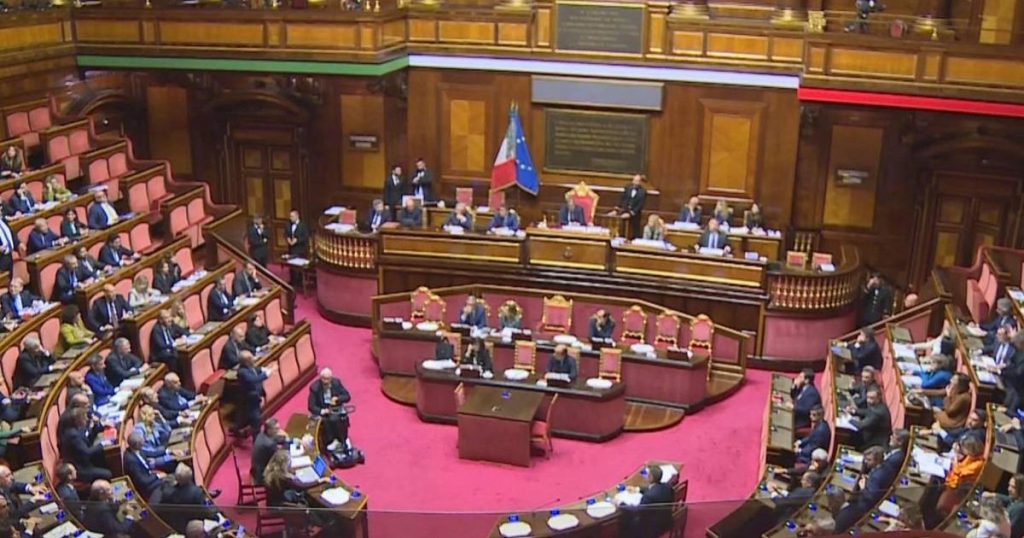The debate over the premiership in the Senate has begun slowly, with voting progressing even more slowly. Only a handful of votes, 43, were cast at the end of the first day, accounting for just 1.5% of the 3000 amendments proposed by the opposition. This has raised concerns for Fratelli d’Italia and Minister Maria Elisabetta Casellati. The opposition parties have utilized all the obstructionist tools allowed by parliamentary regulations, including a theatrical protest in the chamber, which, if implemented, could block the Senate for months. The examination of the amendments started with their presentation by the proposers, and the opposition parties, especially the Pd, took advantage of the opportunity for each proposer to explain their texts. Additionally, there were interventions regarding the order of business. The first votes were only cast after 5:00 pm, with a protest in the chamber during the first vote, where all opposition parliamentarians stood up holding copies of the Italian Constitution. The majority was aware of their plan, and even the center-right senators waved copies of the Constitution in support.
President Ignazio La Russa applied the “kangaroo” rule twice, which allows multiple similar amendments to be dismissed with a single vote, and also announced that he reserves the right to declare other amendments inadmissible due to irrelevance. However, only a few amendments were voted on or dismissed at the end of the session, causing concern, especially for FdI. The rapporteur Alberto Balboni expressed worries to reporters, stating, “Even if we apply all possible ‘kangaroos,’ 1,500 amendments would remain.” This has led to consideration of limiting the time allotted for discussion. A request has been made to La Russa, which was hinted at in the chamber, to potentially restrict the discussion time. As decisions are pending, the Senate will soon resume the examination of the text, which will be live streamed. In terms of substance, discussions have also touched on the electoral law relating to the majority bonus, which must be made feasible under the reform.
During the debate, concerns were raised regarding contradictions in the statements made by Minister Casellati and rapporteur Balboni related to how the majority bonus would be awarded. Balboni stated that the bonus would not be awarded if no coalition surpassed 40%, while the minister seemed to suggest a runoff to allocate the bonus if no coalition reached the threshold. The Lega has expressed a preference for a system without a runoff, with Balboni arguing that the issue will not arise due to the elective premiership favoring the formation of two major coalitions that will surpass the 40% mark. The Lega is not pleased with this declaration, as there is a difference between hypotheses and the reality of voting. The discussions on the premiership and electoral laws will continue as decisions are made on how to proceed with the amendments and timing in the Senate.














